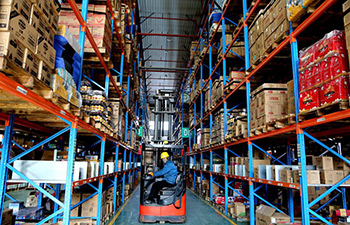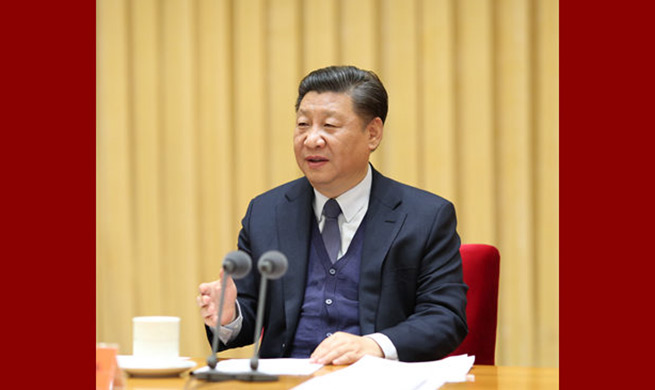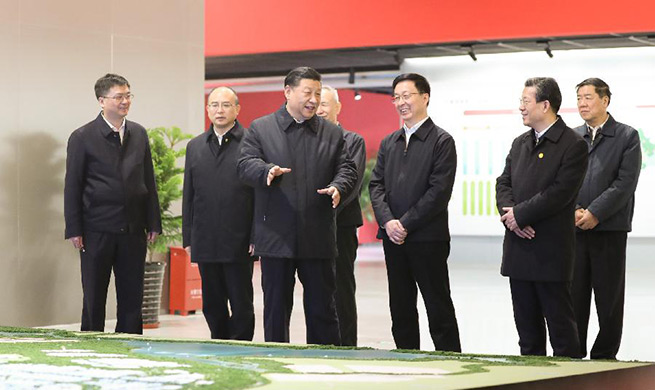by Xinhua writers Luo Jingjing, Yang Shilong
NEW YORK, Jan. 16 (Xinhua) -- Uncertainty arising from the U.S. tariffs battles with its major trading partners is among the big worries for the country's retail industry which the National Retailer Foundation (NRF) says supports 1 in 4 American jobs.
"The trade tensions, I think, really concern businesses ... in terms of what the future holds in store," said Janet Yellen, former chair of the Federal Reserve, at a panel session on Monday during the NRF's annual Big Show in New York City.
There are anecdotal reports about businesses beginning to put on hold investment plans that could include things like upgrades to a retailer's supply chain because of economic uncertainty, Yellen said.
Steven Blitz, chief U.S. economist and managing director of TS Lombard, a research company, agreed with Yellen, saying "uncertainty makes people less willing to invest in their business and to invest in certain supply channels, because they don't know if that supply channel is going to suddenly become more or less economic than the one that existed before."
NRF, which represents the largest private-sector industry in the United States, has been actively lobbying against tariffs unilaterally imposed by the White House on imported goods, according to Bethany Aronhalt, senior director of media relations of the trade association.
Retailers are "closely monitoring" the on-going U.S.-China talks to reduce trade tension between the world's two largest economies, and to see "what will happen leading up to March 1," Aronhalt told Xinhua.
Additional tariffs are taxes that raise costs for retailers, which will be passed along to consumers ultimately, Aronhalt said. "So, this is an issue for every retailer. And these tariffs are creating a lot of uncertainty. They are disrupting supply chains."
Some retailers might be able to absorb the increased costs resulting from the U.S. tariffs policy so far by "integrating supply chain and better cost management" yet, but it is "impossible for them to absorb further price hikes," said Xu Kaiming, board chairman and managing director of Xiamen Rongta Technology, a China-based high-tech company specialized in manufacturing printers, label scales and other POS peripherals.
Smaller retailers are being hit "especially hard" by the impact of the tariffs, and they are "being forced to raise prices, or delay plans to grow their businesses" because they have "less control over their supply chain," Aronhalt said.
"They are more of price takers rather than price negotiators," Aronhalt added.
American retailers are increasingly cautious heading into 2019, with fears of cooling U.S. economic growth and in particular, the disruption in retail if the current partial government shutdown continues, said industry insiders.
The robust holiday sales in the fourth quarter of 2018 American retailers witnessed might be a result from the consumer's rush to cut future costs by shopping more goods before further price hikes due to potential new tariffs, Blitz said.
"Tariff uncertainty drives people to buy a lot of products sooner, because they want to get it in before the tariff goes up," he said.
"People bought a lot of inventories in advance, which gave a boost to the fourth quarter of 2018. Then what's going to come out in the first quarter of 2019? You'll see a drop. It just creates disruptions, and these disruptions shift spending around to non-economic ways," he said.













